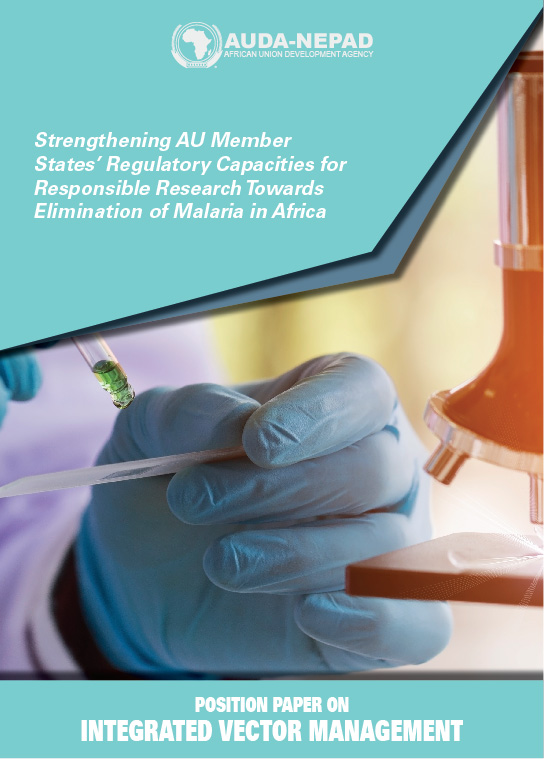AUDA-NEPAD reaffirms her commitment to supporting AU Member States in building regulatory systems that are required to safely explore the usage of innovative tools for the elimination of malaria and other arthropod-borne diseases. The AUDA-NEPAD IVM programme encourages any parties bringing into AU Member States emerging vector control tools, such as transgenic insects, to engage with us as per our mandate "as the continent’s technical interface with development partners & stakeholders".
POSITION PAPER SYNOPSIS: Africa continues to bear a heavy brunt of the malaria which is a disease transmitted by the female Anopheles mosquito. Thousands of lives, mostly of young children, are lost every year; which undermines efforts deployed at various levels for increased life expectancy and improved wellbeing for the socio-economic transformation of the continent. Accelerated changes and complementary tools are urgently needed to ensure effective elimination of malaria on the continent. Genetic engineering has been identified as one of such promising tools when applied to mosquito populations to reduce the transmission of the malaria parasite. The African Union Development Agency – NEPAD (AUDA-NEPAD), based on recommendations from the African Union High-Level Panel on Emerging Technologies (APET), continues to provide African Union Members States with the necessary support to ensure that research on and development of new genetically based vector control tools are conducted in a responsible manner and in full compliance with safety requirements for human health and the environment for the benefit of African communities.




